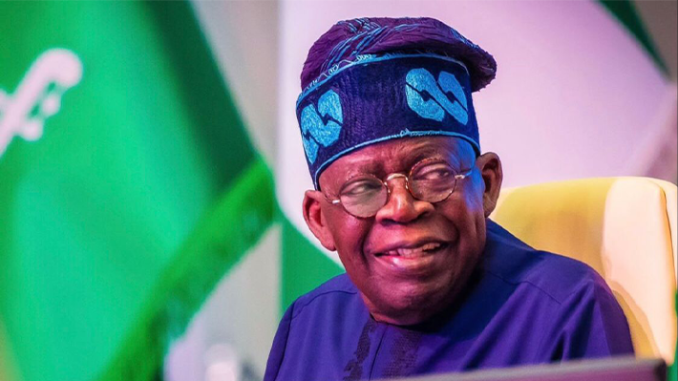
… seeks partnership with private sector
In a move to revive Nigeria’s struggling economy, President Bola Tinubu has announced a N2 trillion economic stabilisation plan.
Tinubu unveiled the plan, which aims to revitalise the economy over the next six months, during the inauguration of the presidential economic coordination council (PECC) on Thursday.
Established in March, the PECC is chaired by the president and includes key government officials such as the vice-president, the senate president, and the chairman of the governors’ forum.
Prominent private sector leaders, including Aliko Dangote, Tony Elumelu, and Bismarck Rewane will serve on the council for one year.
Tinubu’s administration has faced criticism for its economic reforms, including the removal of petrol subsidy and foreign exchange policies which have made life difficult for Nigerians. However, the government remains optimistic that the short-term pain would yield long-term benefits and attract foreign investment.
Speaking at the inauguration of the PECC, Tinubu expressed his gratitude to private sector leaders like Dangote, Elumelu, and others for their participation.
“It is Nigeria that is calling, not a Bola Tinubu. And the hope of the entire nation hangs on you people,” he said.
Speaking on current economic challenges, the president recalled that he declared a state of emergency on food security and outlined plans to increase oil production, improve power generation, and leverage infrastructure development to boost agriculture and electricity supply.
“We have a challenge thrown at us and all of us will have to be careful. I believe today is America’s 158th of their independence while we are celebrating our 25 years of progress of democracy,” Tinubu said.
“We have to look back at how we have navigated ourselves and look forward [to] better economic navigation.
“I can give instructions as the president from my office but I believe so much, deeply in the organised private sector.
The partnership to drive the economy of this country, for reforms and stabilization that is necessary, give the incentive where we must and leave the market to control the pricing mechanism and the consumption.
“I am ready to listen to you in all of that. You have seen us from close quarters but we are one.
“We feel the market pinches differently the price of foodstuff and all of that. I believe Bismarck Rewane will be able to make additional suggestion on what we are lacking and what we should do to stabilize this economy.”
Tinubu acknowledged the challenges faced by the market, particularly in terms of food prices, as he expressed his willingness to listen to the private sector leaders for their recommendations on stabilising the economy.
He also highlighted the government’s plans for a manufacturing stabilisation fund and support for micro, small, and medium enterprises (MSMEs), saying “the manufacturing stabilisation fund, MSMEs too and other fiscal measures have been narrated, I just want to say thank you for responding to this call.”
